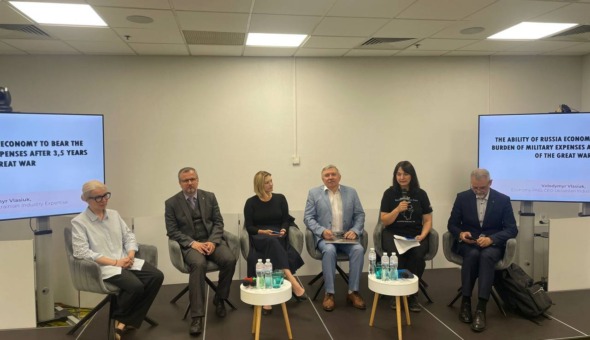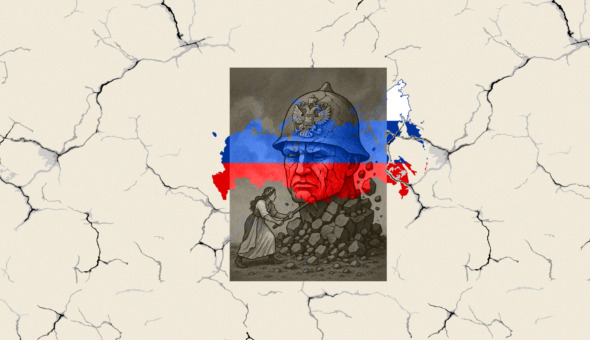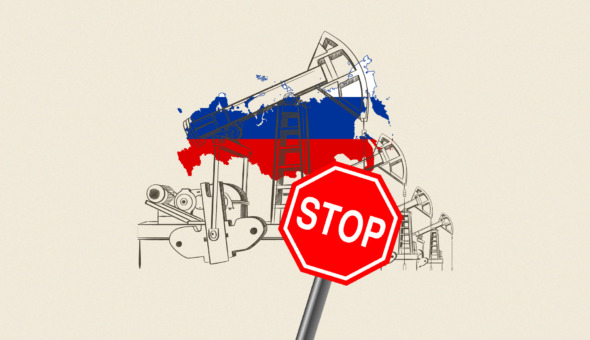
Schools, universities, and libraries destroyed by the aggressor, as well as broken reform plans, are far from the only consequences of Russia’s full-scale aggression against Ukraine for education. As a result, the main question that both parents and teachers are concerned about today is how to ensure quality education in wartime conditions.
Natalya Tishkova, an education expert of the Network for National Interests Advocacy Network “ANTS”, talked about the main challenges of today and ways to overcome them.
“School is a workshop where the thinking of the younger generation is formed,” – Henri Barbus said. “You have to hold it firmly in your hands if you don’t want to let the future slip out of your hands. On the one hand, education in wartime creates a growing generation united by the lofty goal of a bright, sustainable future for our Ukraine, according to Natalya Tishkova, – It is an undeniable fact that the people of Ukraine have united for the sake of our common victory in this war. But, on the other hand, what are today’s educational problems and challenges?
- Destroyed schools
- There are no bomb shelters
- Lack of specialists
- The possibility of an energy crisis during the winter season
But first, let us analyze the situation for all educational process participants. What is the most common educational challenge, according to the average citizen? The answer is almost unambiguous: educational quality! Exactly! The parents of a second-grader do not discuss the school’s bomb shelter/shelter, the parents of a fifth-grader do not worry about heating in the winter, the parents of a tenth-grader will not say today that the school is inadequately equipped, and the student’s parents are not perplexed by the educational program at the school!”
The expert emphasizes that everyone is only concerned with one thing: ACCESS TO QUALITY AND SAFE EDUCATION, emphasizing the word “quality.”
“That’s correct, and the sooner we all realize it, the better we’ll be able to adapt to the changing conditions of the 2022/2023 school year. Nobody was trained to work in a war zone, and no one can predict what other challenges we will face, which means only one thing: “conditions change,” and we must be able to adapt quickly, finding better options to provide the best care possible “.
The breakthrough in digitization and digitization has huge implications for education.
State programs are now focusing heavily on the installation of reliable bomb shelters and shelters in educational institutions, but will this help if there is another pandemic outbreak, for example?
“Our state has made a huge breakthrough in the field of digitization and digitization over the last few years, and as a result, the possibilities of online education have become, without exaggeration, enormous. And, if so, why are we still debating the quality of distance education when almost the entire territory of Ukraine has access to cheap and high-quality Internet? For many Ukrainians, distance education is the only way to obtain a secure education. On the one hand, parents can precisely care for their child because they know where he is, and this educational format is easier to adapt to the conditions of potential pandemics and energy disasters; on the other hand, it is extremely difficult for parents to organize the educational process at home because it requires them to constantly lobby between work and a child. “However, with some preparation: a device, the Internet, and a cloud-based educational environment deployed in an educational institution – three components, and everyone can acquire knowledge with minimal risks and investments, taking into account the factors of the country’s long war,” – says Natalya.
She is convinced that it is now necessary to strengthen the distance education format, focusing on the main requirement of the winners – “Quality,” and that other aspects of the educational field should be worked out after the Victory.
Without postponing until tomorrow or doing what can be done now with only freely available public resources.
According to the expert, there are seven required steps:
- Deploy a cloud-based learning environment that is as secure and controlled as possible.
- Introduce this system in an educational institution to learn how to use online diaries.
- Learn to use online calendars, events reminder apps
- Learn the cyber security rules.
- Give educators continuous Internet access.
- Provide educators with the tools they need to conduct lessons.
- Strengthen the regulatory framework so that the school program becomes even more flexible, with the option of quickly adapting to the asynchronous format of interaction.
“Everything appears simple, but let us return to reality. What we really have is a country at war, teachers who are frustrated with the workload, students who are frustrated with the number of lessons, and parents who are frustrated with the fact that everything has to be done together with the children, especially elementary school students, because the flow of information that is coming in now is straining everyone’s brain. Those who have offline complain that it is dangerous or inconvenient, and request that lesson recordings be sent in parallel, while those who have online complain that everyone in the family has already quarreled as a result of that training. The tenseness is increasing. As a result, the only thing we should do is combine the efforts of a respectable trio: the educational institution – the education students – their relatives, – she says. – This is the wrong path to take when, for an infinite time, each of us individually, but collectively, insists on our own, defends our own aspirations, drawing on the experience of previous years. There is no precedent for our country obtaining an education during a wartime situation. There is such a magical word as “empathy,” and it means only one thing for a respected educational trio – students understand their responsibility for the opportunity to receive titles, teachers try to understand what is the real opportunity for students to receive this knowledge by adjusting the workload and changing approaches, and parents – do not limit their children’s desire to learn and do not undermine the authority of the educational institution, regularly exclaiming”.
Adds:
“Our children are not like us; they are already smarter than us and unique. Experience cannot be used to evaluate their capabilities. What we find difficult is simply “given” to them. As a result, each of us, individually and collectively, must work to improve educational quality, beginning with technical assistance and teacher training on its capabilities,” – Natalya Tishkova is persuaded.
“And this solution will set you back UAH 2-3 thousand. But imagine how this device will affect the quality of spelling in junior high school, when children are just learning to write, and how it will affect the synchronous teaching of mathematics, physics, and chemistry. Document cameras start at UAH 6,000 on average, but what level will synchronous art lessons reach? And this is about the direction of our culture and identity development on the one hand, and reflection and psychological relief on the other. Calendar planning with homework minimization, adaptation of the school program to time constraints. The expert emphasizes the importance of STEAM, interdisciplinary communication, project activities and competence tasks, the incorporation of school social entrepreneurship into the teaching course with the subsequent opportunity to create these enterprises in educational institutions, and much more. “When we talk about education today, we don’t just have to feel the time; we have to prepare the younger generation to be full partners in rebuilding our country’s future in a few years”.
Because the educational challenge is enormous, everyone must put forth extraordinary efforts. You should not put it off until tomorrow; you must begin immediately, doing your own thing in your place and doing your best.
“Do not make decisions for children; instead, become their mentors and mentors, accompany all of their successes and difficulties, but do not make decisions for them, as this will destroy your nerves and deprive children of the opportunity to gain their experience.” It is obvious that the challenges that the younger generation will face are far greater than ours, which means that their path is already more difficult than ours, but it is he who will provide the necessary schools for us to have a strong, prosperous Ukraine in the future. Let us return to the quote with which I began today: “School is a workshop where the younger generation’s opinion is formed; you must hold it firmly in your hands if you do not want the future to slip away.” It’s enough to complain and look for obstacles; let’s focus on the solution, and there is only one major issue in education today: QUALITY, and the methods and formats for each educational institution should already be their own; the main thing is to start working in this direction right now,” – Natalya Tishkova concluded.



